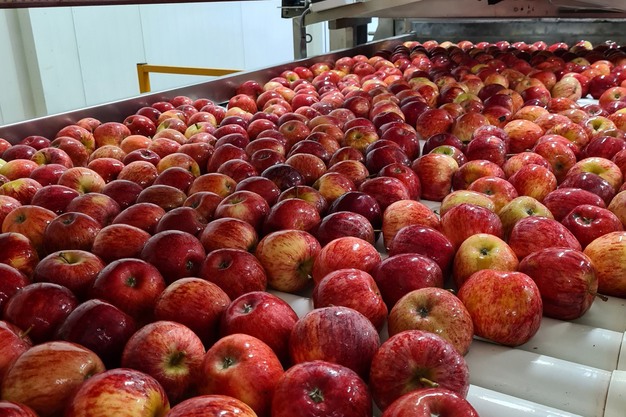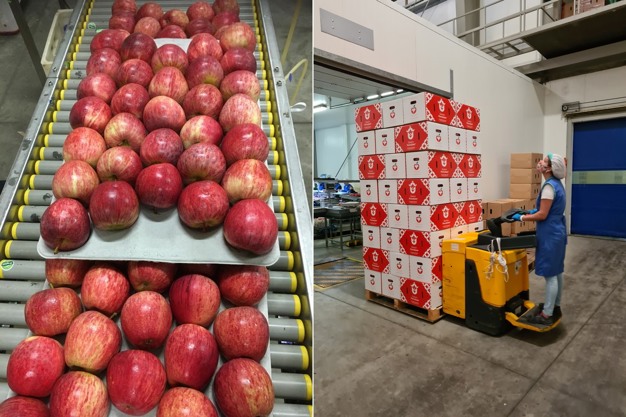Overall production for Portuguese apples should be similar, or even slightly higher than it was last year, says Joao Juma, export manager for Portuguese apple exporter United Growers. "Taking in consideration the few cold hours and the temperature variations we had during blossoming, we're happy to have a production with similar or even slightly higher volumes compared to last season. We still haven't reached our production potential, but all things considered, we have a crop that will allow us to export a good percentage of the production, while keeping the internal market covered."

Harvest of the apples has commenced, but Juma emphasizes not all regions have begun picking the apples just yet. "We just started our harvest in the west-Oeste region. We expect to start harvesting in the north of the country in approximately two weeks. So far, it looks like the production in the west is similar to last year and there's a slight increase of Galas in the north of the country. In terms of Granny Smith and Fuji, we also expect similar production as last year, but we still have some weeks ahead."
United Growers' main export market is expected to be outside of Europe, as one particular South American country is expected to come up short in terms of apple production, Juma claims: "As there's an exceptional low production of Brazil, it looks it will continue to be a major market for Portuguese apples. We also expect to deliver our product and brand to several other South American countries, such as Uruguay, Colombia, Panama, Colombia, Mexico and Ecuador, among others. Regarding the Far Eastern markets, the situation in the Red Sea is definitely continuously bringing challenges, as the cost and transit time are higher and we lose competitiveness compared to the prices that other markets can provide. However, we will still deliver our brand to the Middle and Far East, in an effort to maintain the good work with our exclusive distributors and keep the brand present in the market."

As the WAPA predictions have come out recently, there's a more clear view of what European growers and exporters can expect from the market. Juma states that it's important to look at the varieties that are grown less, as this will show the gaps in certain markets. "If we look at statistics, although the general yield in Europe is around 10% lower, due to the drop of production of Poland and Germany, It's important to understand which varieties had this decline to analyse the situation. As it looks, the major drop of production was of Red Jonaprince, Jonagold, Jonagored, Shampion and only to some extent Golden Delicious and Galas. Usually, most of these varieties and clones do not compete directly to markets where Portuguese apples are exported to, as our product has its specific audience that appreciates our product features. However, it can help the price of Golden Delicious from Portugal to be more stable this year, as last year we observed a general overproduction of it in Europe, which affected everyone."
Juma thinks they'll have a quality advantage this year, and will be able to capitalize in the second half of the season: "What will also impact the market this year, are the high temperatures that East European countries had during the last few weeks. This will significantly decrease quality due to cracking, pressure, storage time and colouration. Fortunately, this is something that we did not suffer this year, and we'll be able to capitalize on our product, as the market will be craving quality apples. We foresee a lack of quality apples in the second half of the season."
The various global challenges will ensure higher prices for the apples this season, Juma thinks. "We do believe that the prices will be higher than we've ever experienced. Too many factors are pushing the prices in this direction, from production costs like energy and fertilizers to lower yields in the Southern Hemisphere and Poland, high temperatures in Eastern Europe, the Red Sea situation, the war in Ukraine, the unstable political situation in the Middle East and UK, and we'll see how the American elections will affect the political balance and therefore the markets."
For more information:
Joao Juma
United Growers
Tel: +351 910 645 600
Email: Portugala@portugalapples.com
www.portugalapples.com
